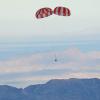Search Results
Showing results 121 to 140 of 210

Hot Stuff!: Investigation #1
Learners test two jars, one containing plain air and one containing carbon dioxide gas, to see their reactions to temperature changes.

Good News: We're on the Rise!
Learners build a simple aneroid barometer to learn about changes in barometric pressure and weather forecasting. They observe their barometer and record data over a period of days.

Acid Rain Effects
Learners conduct a simple experiment to model and explore the harmful effects of acid rain (vinegar) on living (green leaf and eggshell) and non-living (paper clip) objects.
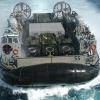
Hovercraft Racers!
Learners build a simple hovercraft using air from a balloon to levitate a craft made from a compact disc (CD).
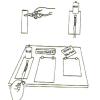
How Far?
To learn how friction affects motion, learners build a measurement tool from a rubber band and other simple materials.

A Recipe for Air
Learners use M&Ms® (or any other multi-color, equally-sized small candy or pieces) to create a pie graph that expresses the composition of air.
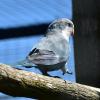
Perching Parrot
Learners explore the concepts of equilibrium and center of mass by seeing how non-symmetrical objects balance.
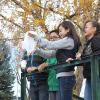
Egg-cellent Landing
Learners recreate the classic egg-drop experiment with an analogy to the Mars rover landing. The concept of terminal velocity will be introduced, and learners perform several velocity calculations.

Rooftop Gardens
How does a green roof, or roof covered by plants, affect the temperature of the inside and outside of a building? Learners design and build houses to find out the answer.

Zero-Energy Housing
In this activity, learners investigate passive solar building design with a focus solely on heating.
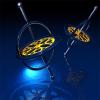
Super Spinners
Learners build at least two different spinners (tops) to investigate how mass distribution, size, and shape affect the length of time the spinner spins.
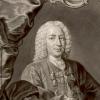
Fun with Bernoulli
Learners conduct four simple experiments to demonstrate the effects of air pressure.

Action-Reaction Rocket!
Learners construct a rocket from a balloon propelled along a guide string.
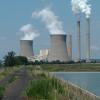
Hot Stuff!: Testing for Carbon Dioxide from Our Own Breath
Learners blow into balloons and collect their breath--carbon dioxide gas (CO2). They then blow the CO2 from the balloon into a solution of acid-base indicator.

A Merry-Go-Round for Dirty Air
Learners build a model of a pollution control device--a cyclone. A cyclone works by whirling the polluted air in a circle and accumulating particles on the edges of the container.

Skateboard Disaster
Learners examine collisions between two skateboards carrying different masses. They learn about conservation of momentum in collisions.
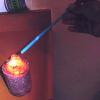
Hot Stuff!: Carbon Dioxide Extinguishes a Flame
In this demonstration, learners observe vinegar and baking soda creating carbon dioxide (CO2) in a bottle. The gas is poured out of a bottle onto a candle flame, putting out the candle.
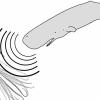
Echolocation in Action!
In this activity, learners simulate whale echolocation. Learners experience echolocation by wearing blindfolds, while another learner makes snapping noises in front of, behind, or to the side of them.


